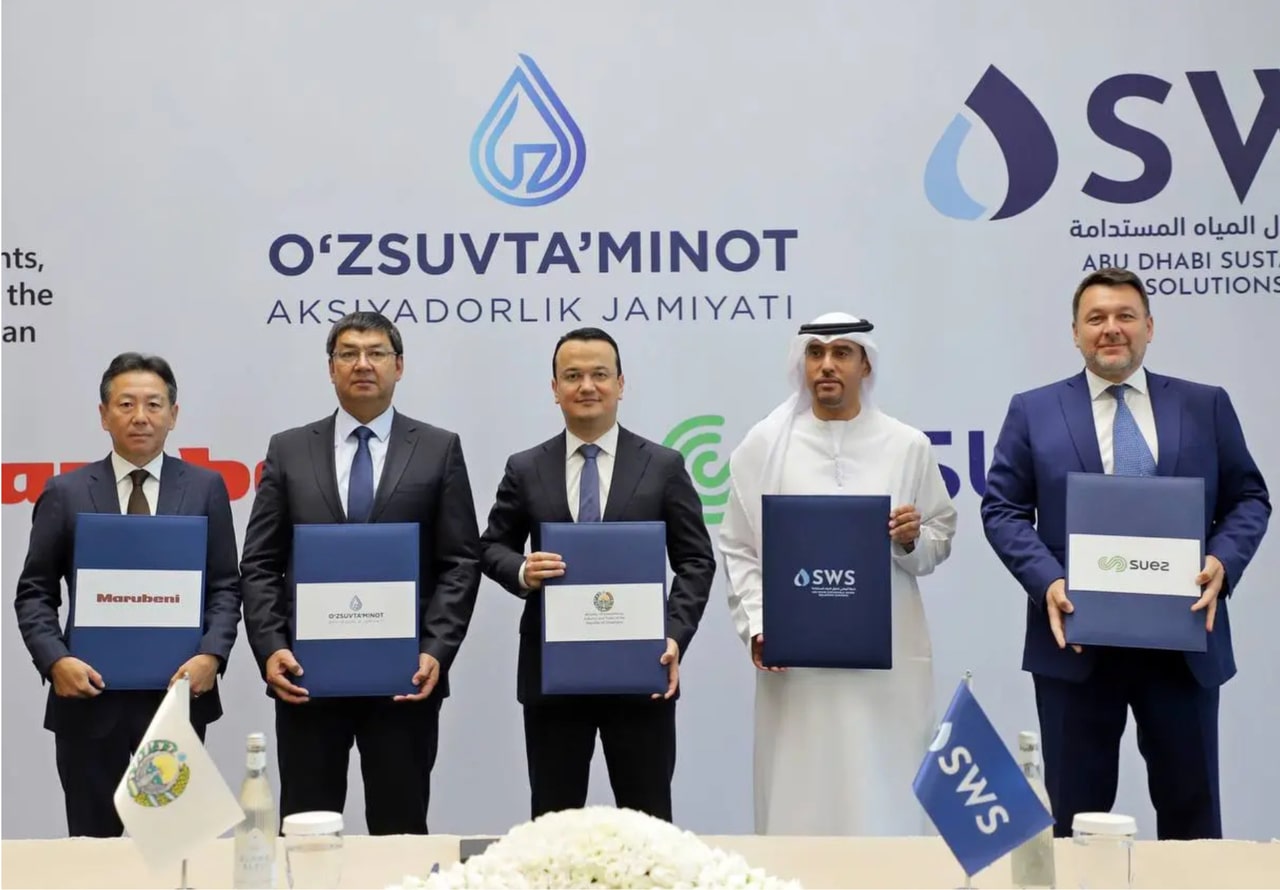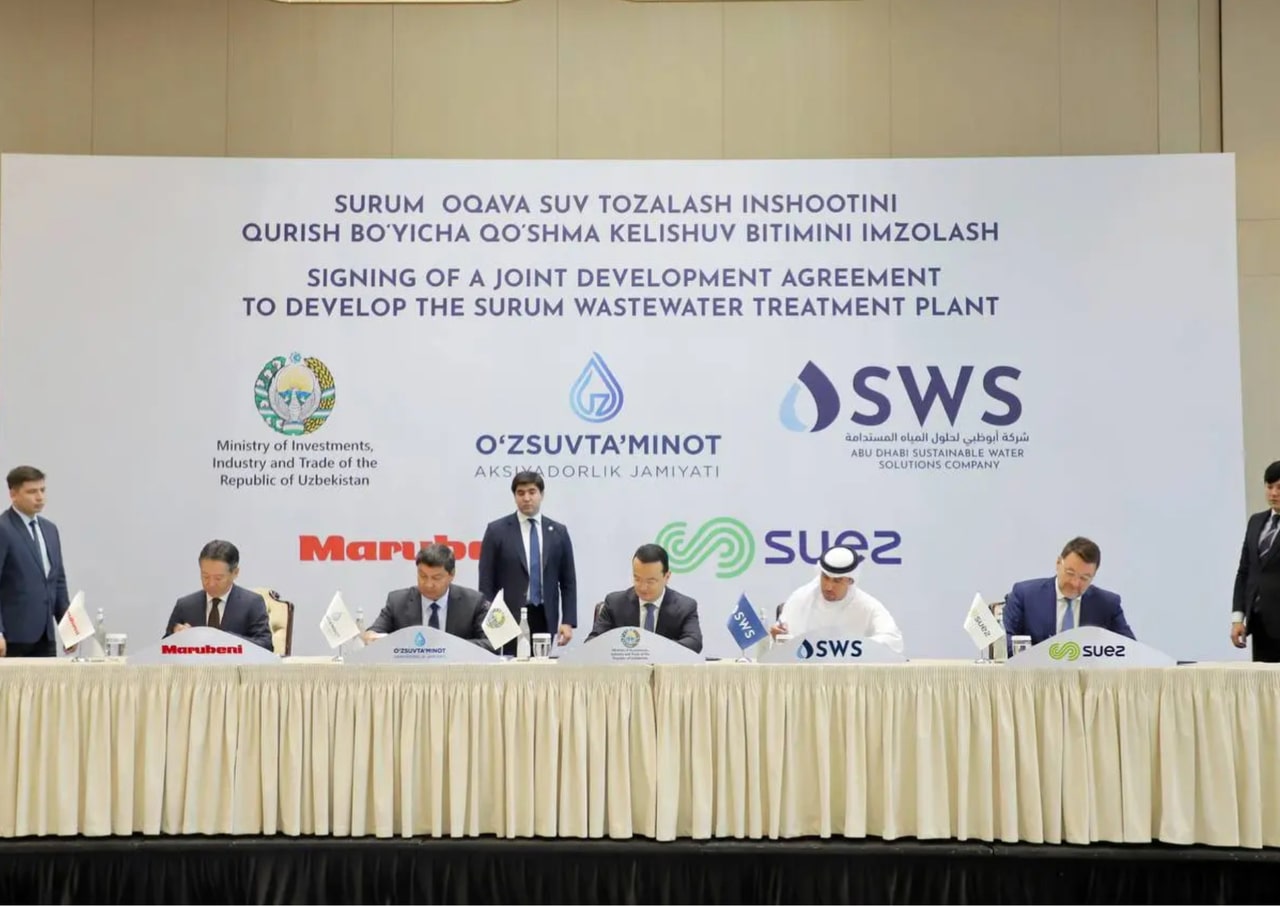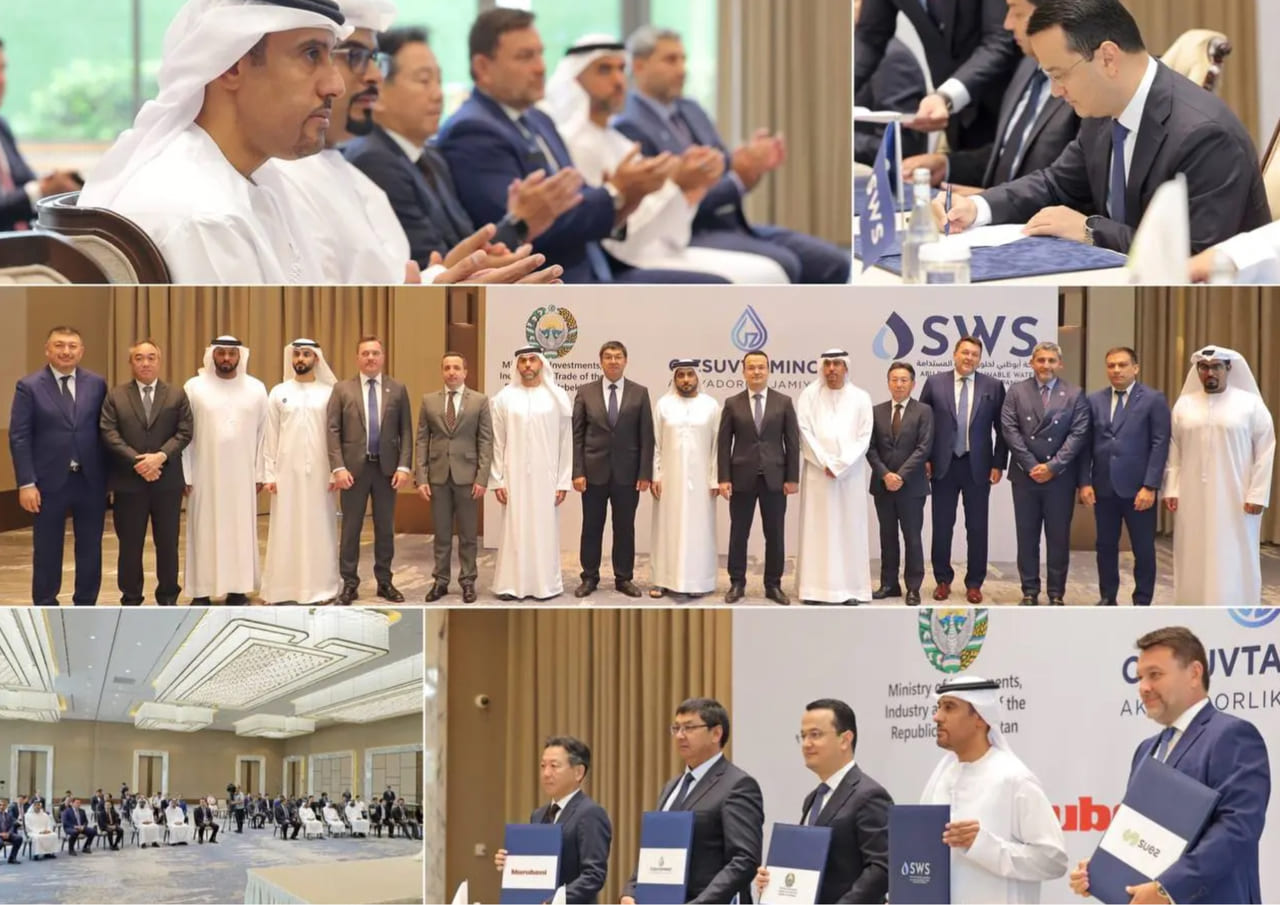A global consortium comprising Abu Dhabi Sustainable Water Solutions (SWS), Marubeni Corporation, and Suez has signed a $1bn joint development agreement with Uzbekistan's Ministry of Investment, Industry and Trade and Uzsuvtaminot to construct Commonwealth of Independent States (CIS) region's largest wastewater treatment facility in Uzbekistan.

The new facility, located in Tashkent, is designed to process 1.5mn cubic meters of water daily. This project is a significant step towards enhancing the region's water infrastructure and supporting Uzbekistan's sustainable water management initiatives.
Key figures at the signing ceremony included Laziz Kudratov, Uzbekistan's Minister of Investment, Industry and Trade; Ahmed Al Shamsi, Managing Director and CEO of SWS; Akhmad Suvankulov, Chairman of Uzsuvtaminot; Kazuaki Shibuya, General Manager of Marubeni's Environmental Infrastructure Department; and Silvere Delaunay, CEO of Suez for the CIS region.
Under the agreement, SWS, Marubeni, and Suez will oversee the development, financing, engineering, procurement, construction, and 25 years of operations and maintenance of the plant. Upon completion, Uzsuvtaminot will assume responsibility for the sewer lines.

Laziz Kudratov emphasized the project’s importance, noting that it symbolizes the growing economic ties between the UAE and Uzbekistan. He highlighted the project's role in improving infrastructure and quality of life in Tashkent and surrounding areas.
The initiative aligns with the United Nations Sustainable Development Goals (SDGs), particularly those related to clean water, sanitation, and sustainable urban development.
On the other hand, Ahmed Al Shamsi stressed the consortium's commitment to delivering sustainable water solutions, while Akhmad Suvankulov noted that the project aligns with Uzbekistan's economic development objectives, promising long-term benefits for Tashkent’s residents.

SWS, a key player in wastewater management, operates a 12,000 km network in the UAE, treating over 1.3mn cubic meters of water daily through more than 200 pumping stations and 42 treatment plants.
The project will commence with the facility operating at a capacity of 1mn cubic meters per day, later expanding to 1.5mn cubic meters. A 42 km wastewater collector will be constructed for efficient transport, and advanced Supervisory Control and Data Acquisition (SCADA) and Geographic Information Systems (GIS) will be integrated for monitoring and management.
The new wastewater treatment facility is expected to improve public health and environmental conditions in Tashkent. It will also contribute to energy savings, reducing electricity consumption by over 10mn kWh, further advancing Uzbekistan's infrastructure development.
Follow Daryo's official Instagram and Twitter pages to keep current on world news.
Comments (0)